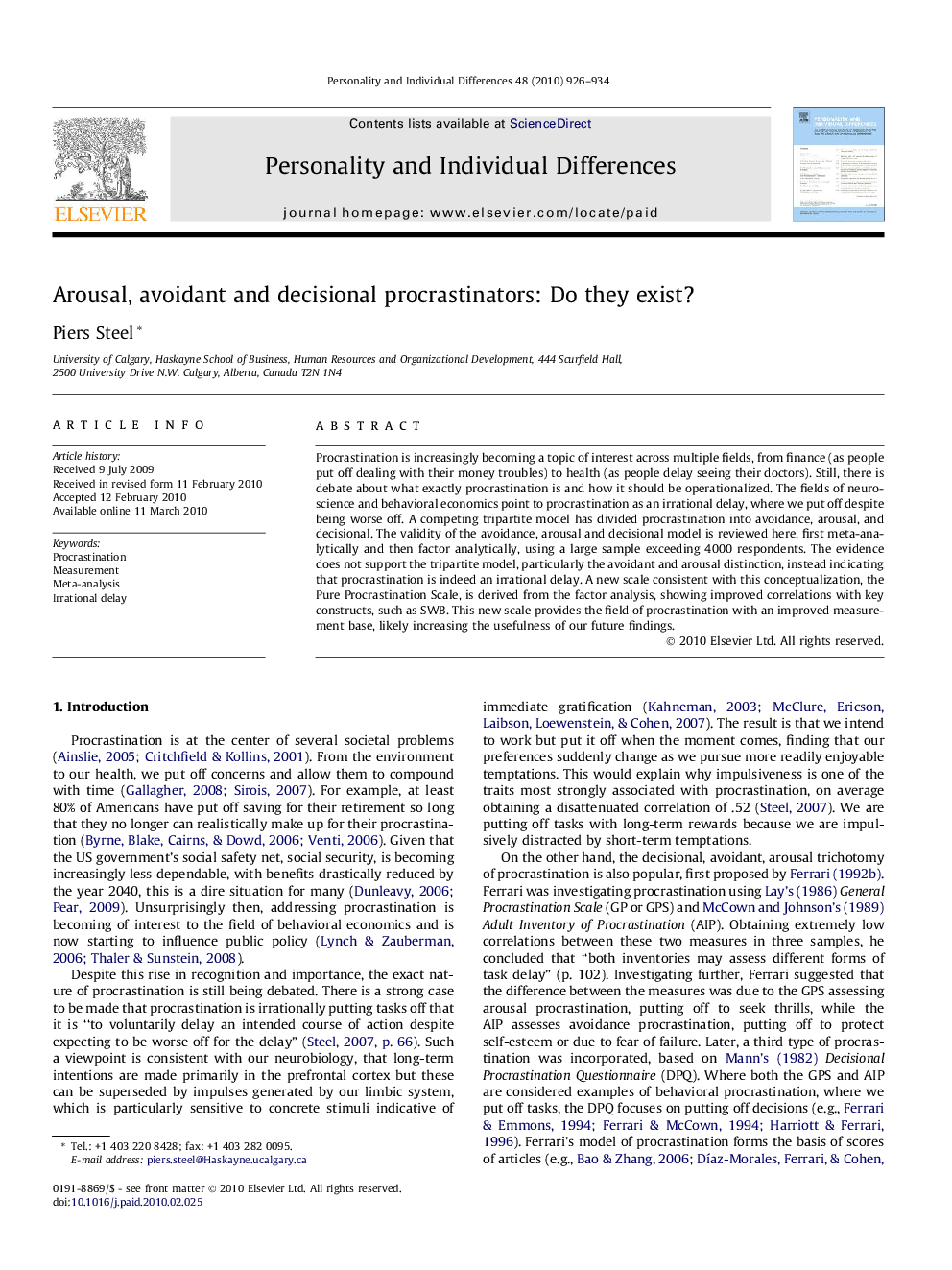| Article ID | Journal | Published Year | Pages | File Type |
|---|---|---|---|---|
| 891993 | Personality and Individual Differences | 2010 | 9 Pages |
Procrastination is increasingly becoming a topic of interest across multiple fields, from finance (as people put off dealing with their money troubles) to health (as people delay seeing their doctors). Still, there is debate about what exactly procrastination is and how it should be operationalized. The fields of neuroscience and behavioral economics point to procrastination as an irrational delay, where we put off despite being worse off. A competing tripartite model has divided procrastination into avoidance, arousal, and decisional. The validity of the avoidance, arousal and decisional model is reviewed here, first meta-analytically and then factor analytically, using a large sample exceeding 4000 respondents. The evidence does not support the tripartite model, particularly the avoidant and arousal distinction, instead indicating that procrastination is indeed an irrational delay. A new scale consistent with this conceptualization, the Pure Procrastination Scale, is derived from the factor analysis, showing improved correlations with key constructs, such as SWB. This new scale provides the field of procrastination with an improved measurement base, likely increasing the usefulness of our future findings.
